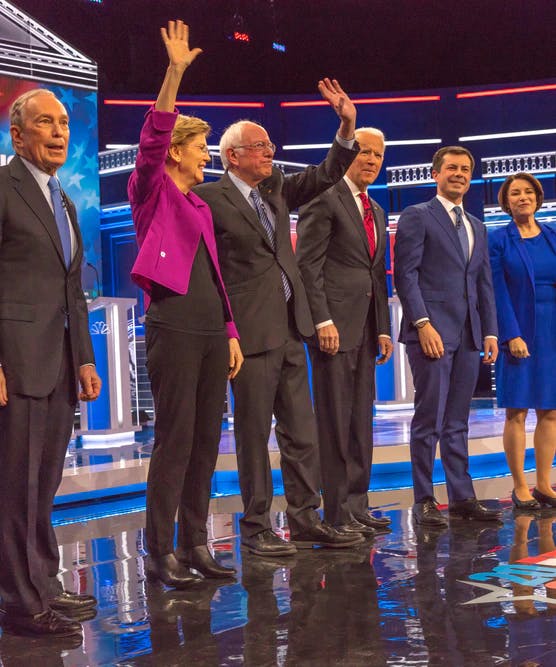Here's What You Need To Know About Super Tuesday
It’s election season, and, chances are, you’ve probably seen the term “Super Tuesday” all over your news feed and social media.

What exactly is this notorious “Super Tuesday,” and why is it so important for the upcoming election? Here’s all you need to know about Super Tuesday before you hit the voting booths.
So What Is Super Tuesday Anyway?
The big question for 2020 is “Who is going to be the Democratic nominee to face off against President Trump in the November Presidential Election?” Super Tuesday, historically, is the day when this crucial question is answered.
Super Tuesday is when the greatest number of states hold their primary elections. Primary elections are when voters in a particular state get to cast their votes for their preferred candidate to become their party’s presidential nominee. Side Note: If your state holds a caucus instead of a primary, that means that your state’s party leaders will cast the vote for the nomination rather than the voters themselves. But don’t worry, you’ll get to vote in the Presidential election in November.
Super Tuesday is when the greatest number of states hold their primary elections.
In 2020, the primaries are the battlegrounds for all of the Democratic candidates to fight for the party nomination to contend against Trump in November. If you’re a Democrat, this is the day when you get to cast your vote for your favorite nominee. If you’re a Republican, you can sit back and watch. Incumbent Presidents, like Donald Trump, typically run uncontested from any serious challengers to their candidacy.
We've already seen the outcomes of two primaries this past month. In addition to the Iowa and Nevada Caucuses, Bernie Sanders won the majority of New Hampshire by a margin of 1.3% against Pete Buttigieg. Meanwhile, Joe Biden swept South Carolina, beating runner-up Bernie Sanders by almost 20%.
However, these results are only from four of the states that will hold primaries during this election season. On March 3rd - Super Tuesday - 14 states will hold their primaries. This means that almost 1/3 of all of the Democratic votes will be cast for the Presidential nomination.
These 14 states include: Alabama, Arkansas, California, Colorado, Maine, Massachusetts, Minnesota, North Carolina, Oklahoma, Tennessee, Texas, Utah, Vermont, and Virginia.
So Why Is Everyone Talking about Super Tuesday 2020?
In short, the nation would normally know who will most likely be the Democratic presidential nominee to run against Trump, or at least the field of possible nominees will be further refined from the remaining candidates.
...but will they?
Here’s what makes this 2020 election so interesting. There is a possibility that there will be no clear Democratic nominee by the end of Super Tuesday.
Here’s what we know. Since Pete Buttigieg and Amy Klobuchar withdrew their campaigns, the four main Democratic candidates for the party nomination include Joe Biden, Bernie Sanders, Elizabeth Warren, and Mike Bloomberg (though Tulsi Gabbard hasn’t officially withdrawn yet).
The winning candidate will need at least 1,991 state delegate votes to win the Presidential nomination.
The winning candidate will need at least 1,991 state delegate votes to win the Presidential nomination. After the New Hampshire and South Carolina Primaries and the Iowa and Nevada caucuses, Bernie Sanders leads the race with 60 votes closely followed by Joe Biden with 54 votes, Elizabeth Warren holding only 8 votes, and, lastly, Mike Bloomberg with 0.
On March 3rd, 1/3 of all of the delegate votes will be cast. If one of the four remaining candidates reaches the 1,991 votes, they will become the Democratic nominee. However, in the case of no clear majority, some speculate that the choice will be deferred until the Democratic National Convention (DNC) in the summer. In this case, the vote would no longer be determined by the Democratic voters; rather, the choice of the Democratic presidential nominee would be in the hands of the Democratic National Convention. This could mean that even Bloomberg or Warren with the least votes could win the nomination through backdoor dealing at the Convention.
Many supporters of Bernie Sanders are concerned that in this event, the establishment of the Democrat Party will tip the scales away from their candidate, as they claim happened in 2016 through back-room dealing and preferential treatment for Hillary Clinton. Just as the Convention cast Bernie in Clinton’s shadow in 2016, they could easily place Biden’s centrist campaign in the 2020 limelight - detracting from Bernie’s more radical left-leaning agenda.
Closing Thoughts
One thing we do know, there will ultimately be one nominee from the Democrat Party to face off against Trump in the fall. We may know more after Super Tuesday, or we might have to wait until the summer to find out who that candidate is. In the meantime, Evie readers, do your own research, vote your conscience, and, as always, Seek Truth, Find Beauty.